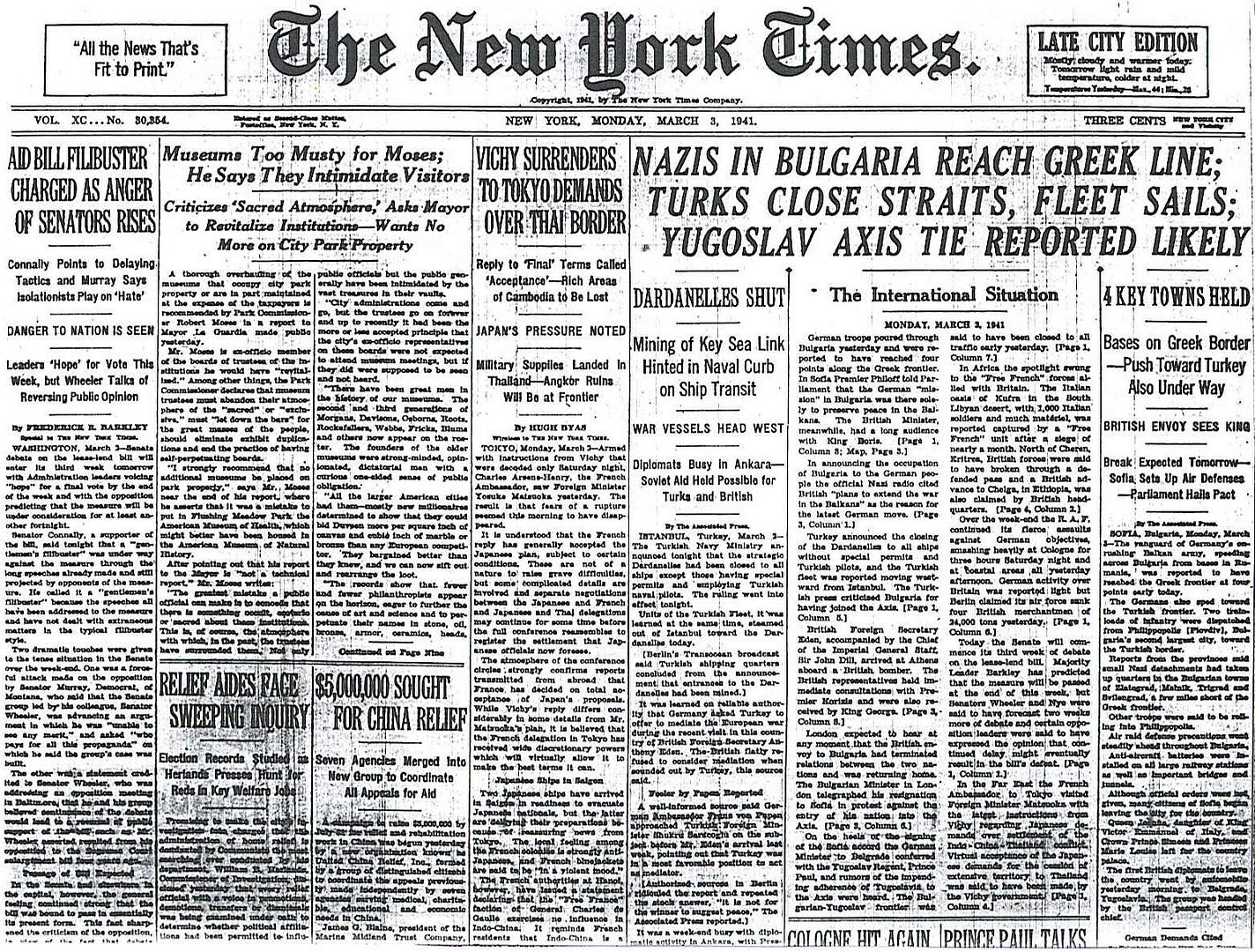
Posted on 03/03/2011 5:25:04 AM PST by Homer_J_Simpson

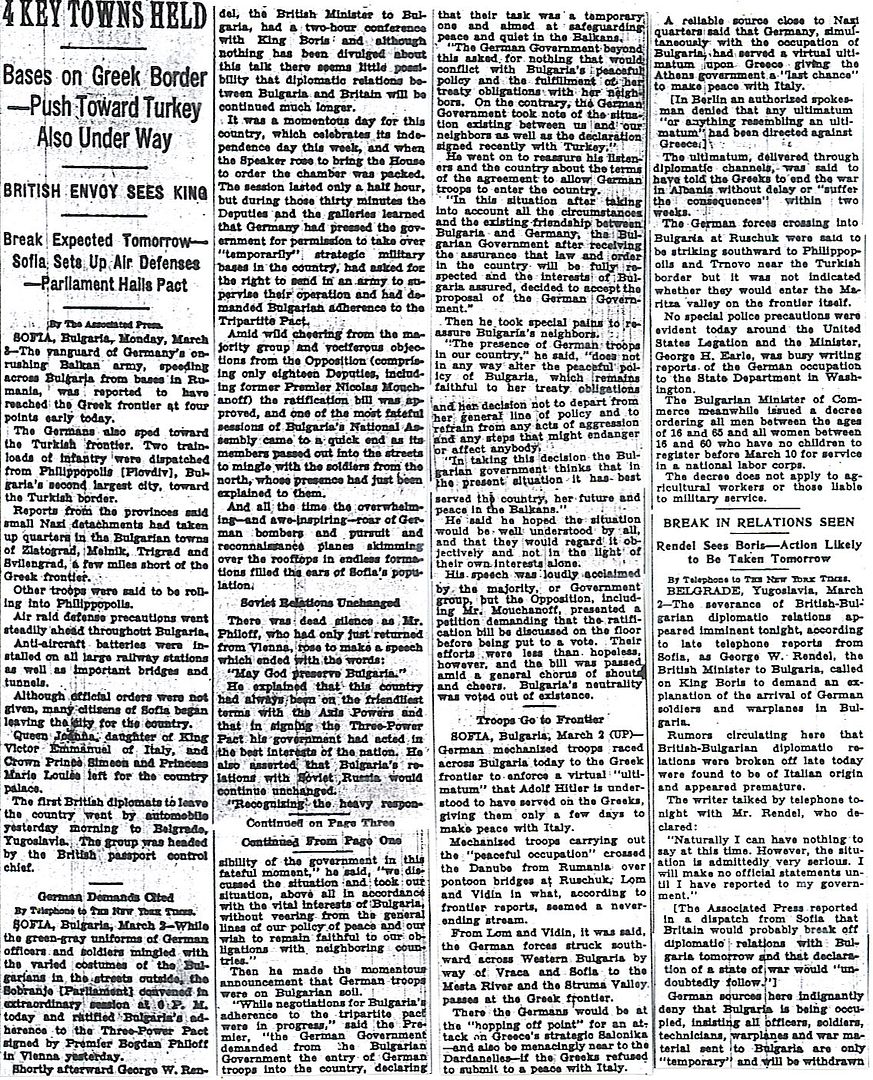
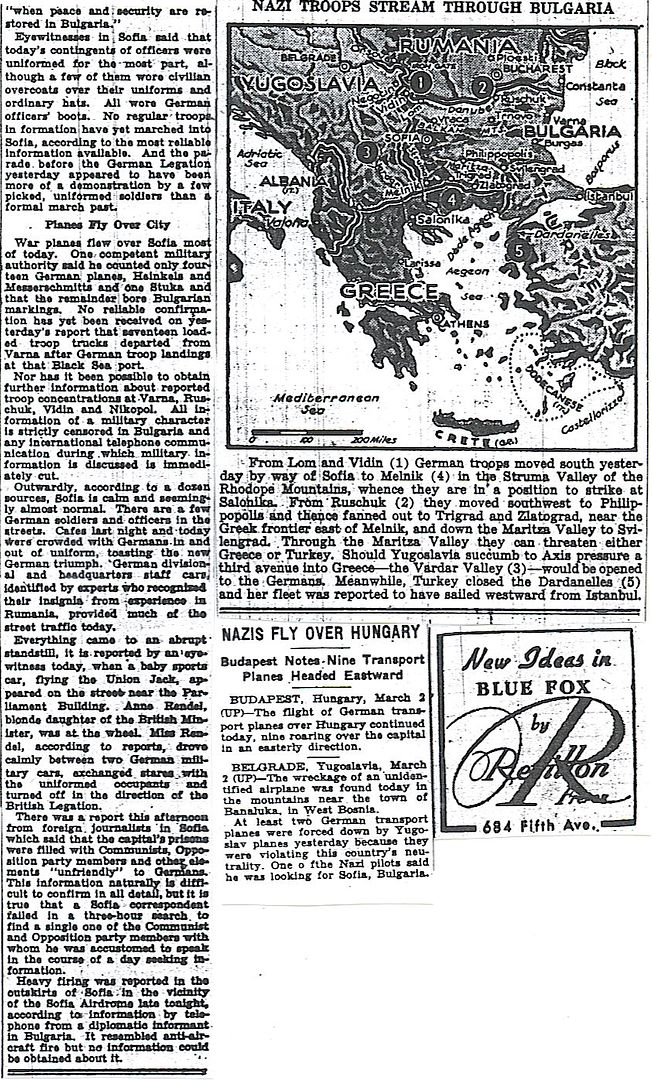
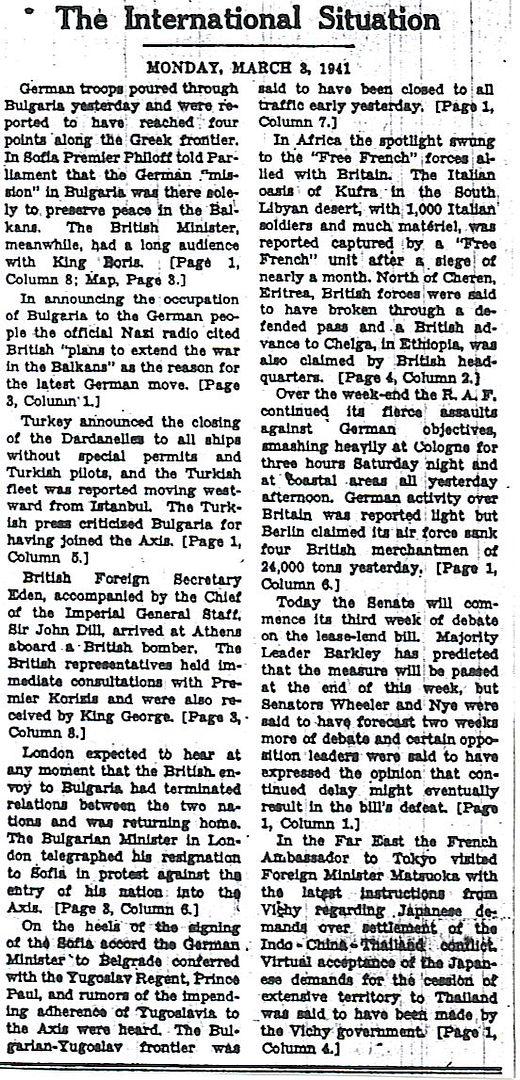
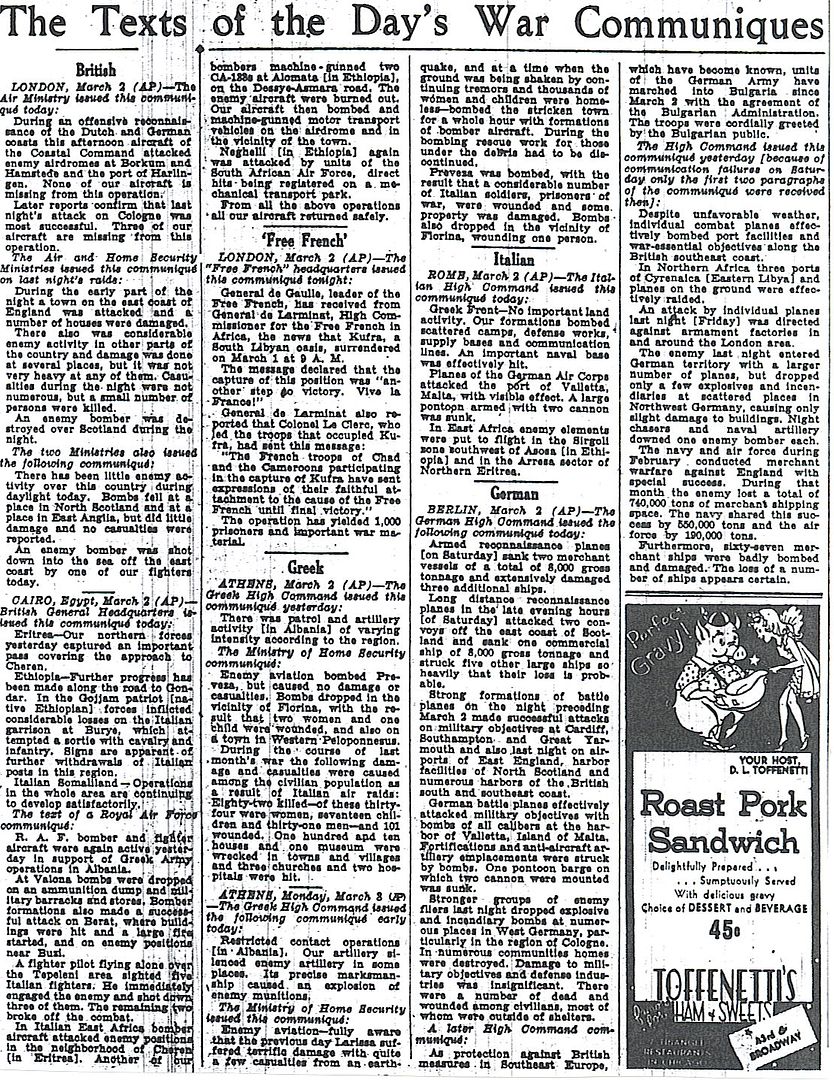
We could start by mentioning the McCollum / Stark letter in response to Ambassador Grew's first warning from Japan.
We could also mention the Marshall letter you (or Homer?) already posted saying he first expected sabotage in Hawaii, preceding an actual attack there.
And there are plenty of similar responses to come.
So the overall message from Washington was: prepare for sabotage, not air attack.
CougarGA7: "Short and Kimmel had plenty of information to make proper decisions to protect themselves and they made bad choices that left them vulnerable."
In fact, they received no warnings from Washington, or anywhere else, of a coming air attack.
CougarGA7: "Of all the books on Pearl Harbor I've read, Victor's is by far the worse."
Of the hundreds of Pearl Harbor books ever written, when I walk into a typical Barnes & Noble, I see Victor, Stinnett, Prange and maybe Toland -- and often only Victor.
So, if as you claim, Victor is full of errors, then there should be a great opportunity for some enterprising historian to set the record straight by correcting previous mistakes and drawing the correct conclusions.
CougarGA7: "The point though is that it was sent from the office of the CNO to the CinC of the Pacific."
Remember, McCollum was also a direct link between CNO Admiral Stark and President Roosevelt.
McCollum controlled and routinely delivered secret naval intelligence to FDR.
McCollum's October 1940 Eight Action Memorandum became Roosevelt's strategy for provoking Japan into war.
Now getting ahead of our story, in the end, McCollum tried to do the right thing and warn Kimmel.
But he was overruled by his superiors, who believed Kimmel had already received enough warnings -- though none regarding air attack had been sent.
CougarGA7: "I'm familiar with who Martin Dies (not Dias) is."
Dies' story was that he gave the map to Secretary of State Hull, who then discussed it with President Roosevelt, who told Hull it must not be released to the press -- which Hull then told Dies.
The Dies' map story happened in "early 1941," around the same time as Ambassador Grew's warning of a Japanese attack on Pearl Harbor.
CougarGA7: "from all I know, the Haan data is very unreliable."
Just as Ambassador Grew's sources were considered "unreliable."
Sure, "unreliable" but, as it turned out, correct.
CougarGA7: "I don't think anyone tried to set the fleet up to fail intentionally for certainly. I can't imagine any military man or politician would want to start in a war with their fleet destroyed."
No, of course not -- Roosevelt said that he was willing to accept the loss of a couple of ships, but no more.
On the other hand, Kimmel and Stark received specific orders telling them, in effect, that Japan must be allowed to strike the first blow.
Cougar, the overwhelmingly important fact here is that President Roosevelt, in campaigning for re-election in 1940 promised the American people that he would not send American boys to fight in any foreign wars.
At the same time, FDR told his friends that if we were attacked, then it would no longer be a foreign war.
Then it would be our war too.
And Commander McCollum's Eight Action Memo of October 1940 gave Roosevelt the plan he needed for provoking a Japanese attack.
Stating that sabotage was a big concern does not give the men in the field a pass on other possibilities being mindful of other means of attack. Commanders expect more from their subordinates as would I. So this is not really anything significant. So I ask again. What do you have that back up your claim that Washington told them to go to sleep? I need you to support this claim with more than "someone said to watch for sabotage". There is no doubt that they should watch for that. Where did Washington tell them that they should only watch for that?
In fact, they received no warnings from Washington, or anywhere else, of a coming air attack.
That's because on the day of the attack no one knew that an attack was coming. So you prove the point on this aspect.
Of the hundreds of Pearl Harbor books ever written, when I walk into a typical Barnes & Noble, I see Victor, Stinnett, Prange and maybe Toland -- and often only Victor.
So that makes his work valid how? Sensationalism sells books. Again I warn you that you need to be able to distinguish between popular history books and academic ones. You will do yourself a favor in really looking into this. The mere fact that you make this part of your argument shows a weakness in you argument in general. I am telling you from an academic analysis of Victor's work that his book is complete crap. I am not telling you this because I have any axe to grind with the man, I think it is great that he is making money off of pushing an idea. But I did a serious look at his use of source material and found that he was chronically off base and used most of every source out of context in order to make it seem like it said something different than what it really meant. I tried to make this point with my analysis of your post in which I repeatedly put the references you put (from Victor) in its proper context. I honestly felt that you would be able to see this if given the proper context of items presented to you would be able to see the fallacy in his method and I still do. Do not embarrass me by proving me wrong on this point.
McCollum's October 1940 Eight Action Memorandum became Roosevelt's strategy for provoking Japan into war.
Again, there is no proof of this and you missed the point of the message itself. Don't fixate on McCollum and pay attention to the content of the message itself. You are trying to use this as some sort of segway into a sidebar point you are trying to make and are ignoring the information in the message itself. This does not help you argument.
Dies' story was that he gave the map to Secretary of State Hull, who then discussed it with President Roosevelt, who told Hull it must not be released to the press -- which Hull then told Dies.
Again you ignore the point. What happened to this information from Dies? Where did it go? No one mentions it so I am only left to assume that it never reached those in command. Anything else is just supposition and therefore make very weak commentary on the actions of those during that time.
Just as Ambassador Grew's sources were considered "unreliable." Sure, "unreliable" but, as it turned out, correct.
Then I place the responsibility on you to prove it. If Haan's information is reliable then what evidence do you have to back that up? My information shows that Haan is not a reliable source. Prove me wrong. Give me something to look at and I will look at it more seriously.
Roosevelt said that he was willing to accept the loss of a couple of ships, but no more.
I need a source for that and I need the original source so that I can confirm that it is stated in the right context. Otherwise I would say that this is just more fantasy provided by some armature writer who want's to sell books.
The thing you need to ask yourself, is if you were in a position of power, would you want to enter a war in a position where your attacker has just disabled the core of your defensive seapower? I have two items of assigned reading that may help you see clear on this better. I will give them to you only if you promise to read them (They are under 10,000 pages).
CougarGA7:"The thing you need to ask yourself, is if you were in a position of power, would you want to enter a war in a position where your attacker has just disabled the core of your defensive seapower?"
No, but if you are the United States in 1941, then you are under the absolute imperative to allow any potential enemy to strike the first blow against us.
And this enemy blow cannot be just some "minor" incident such as German U-boats attacking US destroyers in the Atlantic.
The American people already know that you are playing games with Hitler, and he has ordered his U-boats not to fire on Americans, but "accidents" do happen.
So Americans will not go to war over the Battle of the Atlantic.
And Roosevelt's number one concern at this point (spring 1941) is: what will it take to convince Americans it's no longer a "foreign war," but is now our war too? Answer: more than a destroyer.
How about a couple of battleships?
Sure, that would do it, but if and only if those battleships had clearly not provoked or attacked first.
Yes, there is lots of evidence for all of this, which will get posted in due time -- when I have more time.
CougarGA7: "So I ask again:
What do you have that back up your claim that Washington told them to go to sleep?
I need you to support this claim with more than "someone said to watch for sabotage".
There is no doubt that they should watch for that.
Where did Washington tell them that they should only watch for that?"
Not a single warning from Washington (none that I know of), told Hawaii's commanders to defend against carrier born air attacks.
And the reason, of course, is that Washington claimed they didn't know an air attack was likely, or in fact coming.
But in fact, they did know, and some -- i.e., McCullum, Bratton -- tried to warn Hawaii, but were stopped by their superiors.
CougarGA7: "That's because on the day of the attack no one knew that an attack was coming.
So you prove the point on this aspect."
But in fact, they did know.
CougarGA7: "So that makes his work valid how? Sensationalism sells books.
Again I warn you that you need to be able to distinguish between popular history books and academic ones."
I'll say it again: what academic historians do amongst themselves is no more than mental m*st*rb*t**n.
History only matters when it becomes the public's understanding of what happened in our past.
To put it another way: a hundred academic treatises are not as powerful as one book sold to the public.
History is all about what we believe happened.
We don't much care what academics think -- unless you want to write a popular book to set the record straight.
Now you will have left academia, and joined the public debate. Good luck!
In recent weeks I've checked out two more Barnes & Noble stores.
They each had Prange and Stinnett.
They also had Victor and Toland, but on different WWII history subjects. Neither store had Toland's Pearl Harbor book.
I also found the classic 1957 work by Walter Lord: "Day of Infamy", which gives many details on the attack, but says nothing about warnings or code-breaking.
CougarGA7, referring to McCollum's Eight Action Memo: "Again, there is no proof of this "
In fact, all eight actions were eventually taken, and there was at least one other similar memo from another officer on the joint planning committee.
CougarGA7: "Again you ignore the point. What happened to this information from Dies? Where did it go?
No one mentions it so I am only left to assume that it never reached those in command."
The first question is: did Dies lie about the map, and if so, why?
If he did not lie, then his story is the map went to the Secretary of State and the President -- our Commander in Chief.
So you cannot say it was not seen by "those in command."
More important, it came at the same time as Ambassador Grew's warning from Japan -- a warning dismissed by McCollum and his superior Stark, as being unreliable.
And McCollum is the same officer who wrote the Eight Action Memo on how to provoke Japan into striking the first blow.
CougarGA7: "If Haan's information is reliable then what evidence do you have to back that up? My information shows that Haan is not a reliable source."
So far as I know, there is no evidence beyond Haan's own words supporting his claims.
So, as with Congressman Dies, the question is, was Haan lying, and if so, why?
CougarGA7, referring to FDR's willingness to lose a couple of ships in a Japanese first strike: "I need a source for that and I need the original source so that I can confirm that it is stated in the right context."
Will do, when I get some more spare time...
Disclaimer: Opinions posted on Free Republic are those of the individual posters and do not necessarily represent the opinion of Free Republic or its management. All materials posted herein are protected by copyright law and the exemption for fair use of copyrighted works.